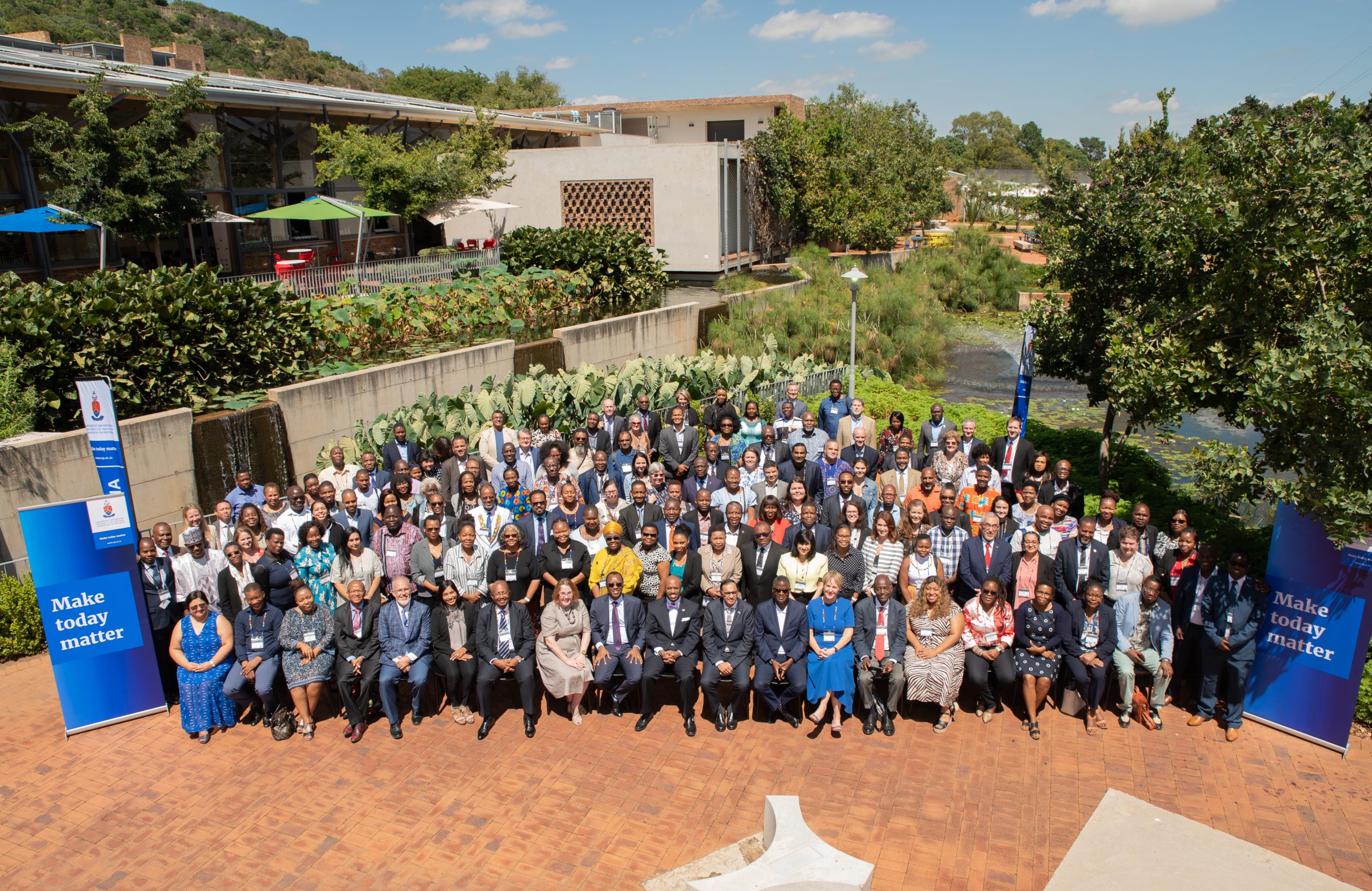February 17, 2023 by Robin J. Lerner
What is the purpose of international partnerships in higher education? This was the question posed by Professor “Prof” Tawana Kupe, Vice Chancellor and Principal at the University of Pretoria when he opened the U.S.-Africa University Partnership Initiative (UPI) conference, sponsored by the U.S. Department of State. The UPI conference was hosted on Prof Kupe’s impressive campus last week. I had the privilege of attending and participating in a panel discussion on internationalization. Now, if you are like me, you approach conferences with trepidation, uncertain if the sessions will be as valuable as you hope. When I heard Prof Kupe’s opening remarks, I began scribbling notes like crazy. This man was speaking out-loud the Texas International Education Consortium’s philosophy on internationalization. I felt like he was reading my mind.
Specifically, Prof. Kupe reminded us all that international partnerships “must be leveraged to create a greater impact on society,” and that our internationalization agenda “should be centered on bettering our planet.” While this may sound like Internationalization 101, it’s actually not. Many institutions’ internationalization efforts are narrowly tailored to student mobility, and others are driven by funding opportunity. Nothing wrong with that, but it misses the chance to drive a strategy toward larger impact.
Those who heard my presentation on the evolution of international education heard the TIEC philosophy that internationalization activities are just that – activities. They are not the end goals, and we should not treat them that way. While it’s nice to have students spend time overseas, the hope is that such an activity will, for example, allow them to gain a new perspective on an old problem, teach them new ways of communicating, and enable them to realize their role in global issues by seeing the impact on other countries and cultures. It was heartening to hear from the leader of a large and successful institution that we must “discard narrow methods of internationalization and focus on achieving greater benefit.” Hear, hear, Prof Kupe.
With that strong start, the UPI conference was a phenomenal effort that brought together faculty and administrators from universities all across Africa with their U.S. partners who have been funded under the State Department’s UPI program. TIEC was invited due to our successful UPI program with the Kwame Nkrumah University of Science and Technology (KNUST) in Ghana.
Coming together in a global forum to talk with other internationalization enthusiasts was soul-filling. Beyond the devastating health and mortality toll that COVID exacted, it can be challenging to describe all the ways in which the pandemic impacted our industry. The cessation of travel and physical exchange was outwardly evident, but the more hidden impacts are still being uncovered. In some ways, we have had to start over in our creativity toward partnerships. It takes energy and time to build the relationship that will be at the heart of a partnership. It also takes unwavering focus and commitment to outcomes that are often long-term. As the short-term crises that COVID created begin to dissipate, I see our ability to resume exercising those soft skills that are essential to partnership development and sustainability.
As I reflect on the opportunity the UPI conference handed me, I know the trick here is to keep the spark of interest in collaboration alive and make something happen from those meetings. This is when I feel grateful to be part of TIEC. As an external partner to our member universities, it’s our job to keep the relationships going – that’s how we measure ourselves. We listen to what institutions are seeking to achieve and where they are in their journey, and we make thoughtful matches. After experiencing South Africa’s practice of “load shedding” to manage energy shortages, I can see wonderful potential to build partnerships between South African and Texas universities around energy governance, energy diversification, and green energy innovations, as a start. I get excited thinking about the kinds of research and trials that might be shared between students in South Africa and Texas, and this is exactly the kind of outcome-focused, two-way exchange that successful university partnerships are built on.
I appreciate the efforts that the U.S. Department of State and U.S. Embassy Pretoria put into the conference. University partnerships are a strong pillar of U.S. public diplomacy, and this conference served to reignite the value of shared passions, efforts, and goals. Of course, a trip to South Africa would not be complete without visiting Kruger National Park. So, I decided to drop a few pictures of that here, too. Enjoy!

